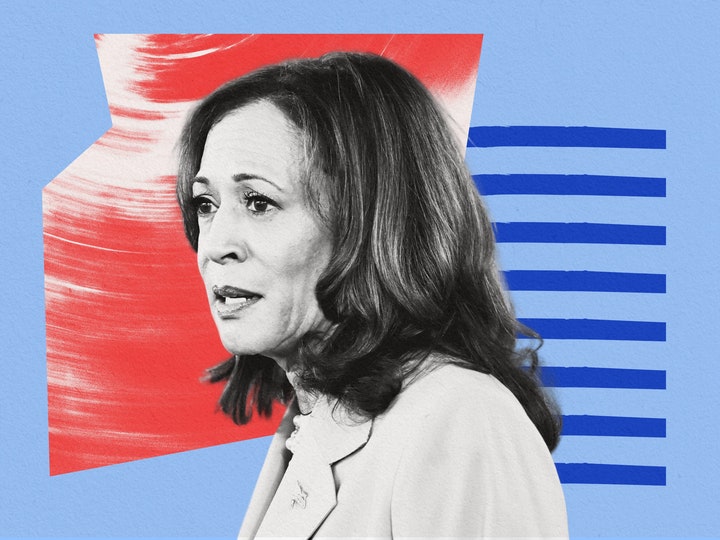Nearly two decades ago, Vice President Kamala Harris learned during what she thought was an ordinary lunch date that her mother—renowned breast cancer researcher Shyamala Gopalan—had been diagnosed with colon cancer. “It was one of the worst days of my life,” Harris recalled in a 2018 op-ed published in The New York Times. “I think of the battles she fought, the values she taught me, her commitment to improve health care for us all…. As I continue the battle for a better health care system, I do so in her name.”
Harris spent every moment she wasn’t fulfilling her duties as district attorney of San Francisco by her mother’s side, holding her hand and helping her through “the misery of chemotherapy,” cooking her meals, and bringing her soft clothes to keep her comfortable and hats after she lost her hair. She watched the disease strip all of the quirks that made up her mother’s fiery spirit up until the moment she died, two months after her 70th birthday.
That time with her mother, Harris says, revealed a bleak truth to her: America’s health care system doesn’t prioritize the people it’s supposed to serve, but rather the amount of money it can make from them. Ever since, this realization has molded her views on and efforts to improve health care policy in America.
“There should be nothing partisan about wanting a system where health coverage and care are based not on how much money you have or where you live. We need a system with the goal of good outcomes rather than the goal of high profits,” Harris wrote in the op-ed. “I believe that health care should be a right, but the reality is that it is still a privilege in this country. We need that to change.”
Harris said that she remembers “thanking God” that her mother had Medicare—the government-funded health insurance program for people ages 65 and older—when she received her diagnosis in 2008. At the time, private health insurance companies were allowed to charge higher premiums and impose exclusions or entirely deny coverage for medical conditions that were diagnosed before a person joined its plans. It wasn’t until 2010 that the Affordable Care Act (ACA), also known as Obamacare, would be signed into law. The ACA protects Americans from these tactics and gives more people access to health insurance that they can actually afford.
This experience inspired Harris to advocate against Republican-led lawsuits that attempted to get rid of some of the ACA’s protections or the entire plan altogether. She was among the first senators to support the Medicare for All bill: a single-payer, national health insurance program introduced by Senator Bernie Sanders that aimed to provide all Americans with health coverage with no premiums, deductibles, copays, or surprise bills. “Medical procedures already have risks. Prescription drugs already have side effects,” Harris wrote. “Financial anxiety should not be one of them.” Harris later introduced her own “Medicare for All” bill in 2019, but her campaign has since said it’s no longer on her agenda, which is unfortunate.
Nevertheless, Harris’s time as vice president reflects how much her mother’s colon cancer experience has shaped her views on health care. Harris helped win the right for Medicare to negotiate lower drug prices and cap the cost of the diabetes medication insulin at $35 for seniors. In an August 16 press release, Harris laid out several proposals for her first 100 days in office, which includes capping the cost of insulin at $35 and out-of-pocket expenses for prescription drugs at $2,000 for everyone, not just seniors; increasing competition among pharmaceutical companies to help lower prices; and canceling $7 billion of medical debt for up to 3 million Americans, as well as removing this debt from their credit reports.
On a similar note, Harris has talked about how her mother’s work as a scientist has impacted her. “I remember how proud my mother was to work with the National Institutes of Health as a peer reviewer and collaborator with other experts in her field,” Harris wrote in her 2019 memoir The Truths We Hold: An American Journey. “If we want our children to have cures for humanity’s most terrible diseases, we should invest in our national medical researchers, instead of relying on companies that would rather funnel money to their shareholders.” And in a 2020 tweet, Harris said: “[My mother] was my inspiration and dedicated her life to finding a cure for breast cancer. I will always fight for public funding for cancer research—too many lives have been cut short.”
More recently at the Democratic National Convention, Harris shared how her mother’s legacy has turned her into the leader she is today. “She was tough, courageous, a trailblazer in the fight for women’s health,” Harris said. “She taught us to never complain about injustice—but do something about it.”
Your health is always on the ballot—and your vote is more powerful than you realize! Read all of SELF’s coverage of the 2024 election and make sure you're registered to vote.
Related:
- How Tim Walz Has Been a Champion for Reproductive Rights, From Abortion to IVF
- 7 Things Therapists Are Telling Clients Feeling Terrified About the Election
- Here’s Where Kamala Harris Stands on 6 Essential Health Issues
Get more of SELF’s great service journalism delivered right to your inbox.

